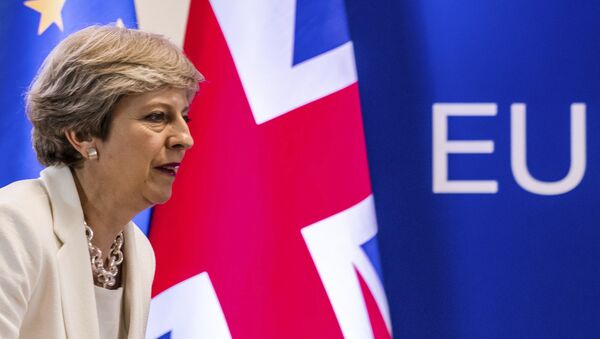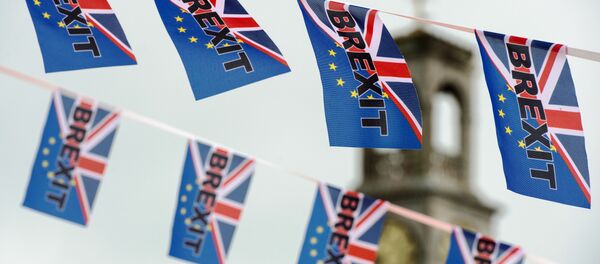British Prime Minister Theresa May has admitted that the country possibly crashing out of the EU will have harsh consequences but said that the government should "make a success" of the no-deal Brexit scenario.
"Look at what the director general of the World Trade Organization [Roberto Azevedo] has said. He has said about the no-deal situation that it will not be a walk in the park, but it wouldn't be the end of the world," May pointed out.
READ MORE: Britons in EU May Lose Access to UK Bank Accounts Under No-Deal Brexit — Reports
She said of the government's current efforts to brace for a no-deal scenario that "if we are in that situation, we can make a success of it, just as we can make a success of a good deal."
May's remarks came a few days after former European Council President Herman Van Rompuy told the Observer that the no-deal Brexit issue is "not just a problem for the UK or Brussels" and that "it is also an existential threat to the UK itself."
He warned that a no-deal Brexit could lead to a change of government if the House of Commons doesn't support this decision, which could lead to new elections.
READ MORE: UK Minister: EU Officials Aware 'No Deal' Brexit Will Hurt Europe Economy
Last week, Brexit Secretary Dominic Raab suggested that there would be "opportunities" emerging from the UK leaving the EU with no deal, while Chancellor Phillip Hammond claimed that the country's GDP would nosedive 7.7 percent over the next fifteen years.
In July, International Trade Secretary Liam Fox cautioned that EU leaders forcing Britain into the no-deal Brexit scenario will result in "a consequence for their economies" and will have a negative impact on the "economic prosperity and wellbeing" of EU citizens.
READ MORE: Prospect of No-Deal Brexit Scenario Over 50% as UK Keeps Changing Demands — Prof
According to the so-called Chequers plan, adopted by the UK cabinet in July, the sides could create a free trade area for goods and maintain a "common rulebook" for all items, a proposal which has already been rejected by Brussels.
The UK voted to leave the EU in a referendum in 2016. The Brexit negotiations officially started in June 2017 and are expected to be completed by the end of March 2019.



